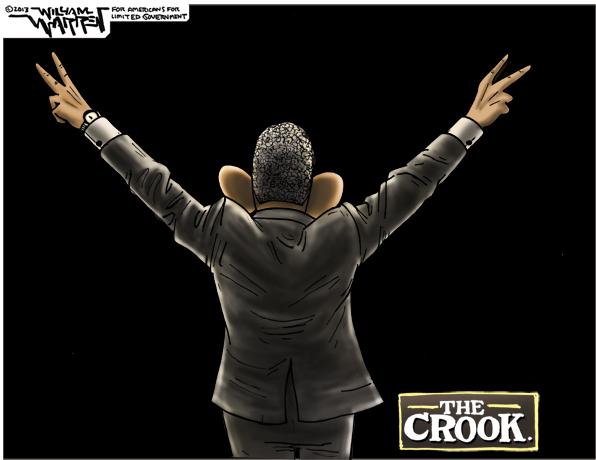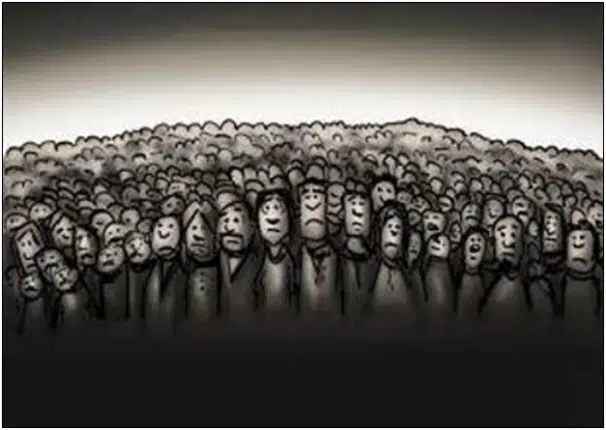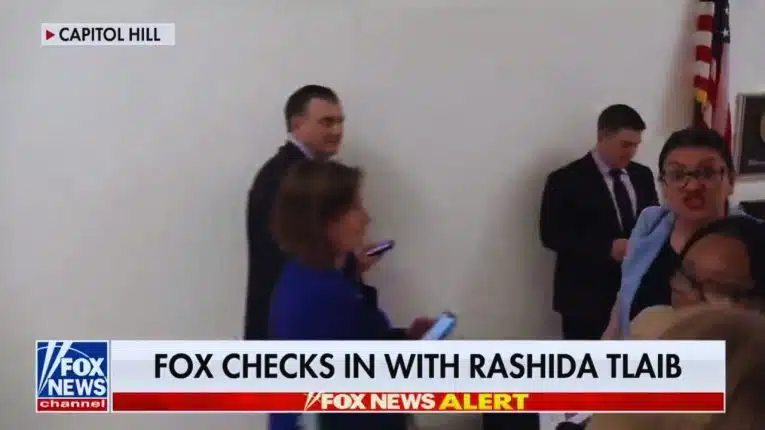In 1974, then-special prosecutor Leon Jaworski issued a subpoena for the infamous White House tapes. Those tapes were the critical bit of evidence that might prove Richard Nixon was involved in the Watergate scandal and cover-up.
Nixon refused, claiming an absolute executive privilege against judicial proceedings.
It led to a landmark Supreme Court ruling, U.S. v. Nixon, which compelled the President to turn over the tapes. On one tape, eighteen minutes were missing — the White House claimed that Nixon’s secretary Rose Mary Woods accidentally deleted it. We’ll never learn what was contained. But fifteen days later, facing an imminent impeachment, Nixon resigned.
Today, there is another instance of the executive branch withholding key information from a potential criminal investigation, this time supposedly losing over two years of Lois Lerner emails relevant to continued Congressional investigations of the agency targeting of tea party and other 501(c)(4) non-profit groups.
The missing emails cover the critical inception of the targeting, dating from January 2009 to April 2011, when a supposed computer crash led to the data loss. Now, the New York Times reports that, additionally, “because of financial and computing constraints, some emails had been stored only on individuals’ computers and not on servers, and that ‘backup tapes’ from 2011 ‘no longer exist because they have been recycled..”
This, despite the fact, as Americans for Limited Government President Nathan Mehrens, a former official at the Labor Department, notes, “every federal government agency operates under recordkeeping requirements that mandate the agency preserve records that contain proper documentation of the functions, policies, and decisions made by the agency and its officials.”
Mehrens added, “It would take a massive, concerted cover up in order to delete those emails.”
Cleta Mitchell, a counsel representing True the Vote (TTV), a non-profit that was targeted, wrote in a letter to Justice Department attorneys representing the IRS in pending federal litigation that “several statutes and regulations require that the records be accessible by the Committees, and, in turn, must be preserved and made available to TTV in the event of discovery in the pending litigation. Those statutes include the Federal Records Act, Internal Revenue Manual section 1.15.6.6 (which refers to the IRS’s preservation of electronic mail messages), IRS Document 12829 (General Records Schedule 23, Records Common to Most Offices, Item 5 Schedule of Daily Activities), 36 C.F.R. 1230 (reporting accidental destruction,) and 36 CFR 1222.12. Under those records retention regulations, and the Federal Records Act generally, the IRS is required to preserve emails or otherwise contemporaneously transmit records for preservation.”
Mitchell continued, “the failure for the IRS to preserve and provide these records to the Committees would evidence either violations of numerous records retention statutes and regulations or obstruction of Congress.”
Which, Mitchell noted, would be a crime: “18 U.S.C. § 1505 makes it a federal crime to obstruct congressional proceedings and covers obstructive acts made during the course of a congressional investigation, even without official committee sanction.”
Mitchell is now requesting access to the IRS computers in question, and is prepared to get a court order to furnish the computers for forensic investigation.
House Ways and Means Committee Chairman Rep. Dave Camp (R-Mich.) for his part has called on the Department of Justice and the Treasury inspector general’s office to immediately investigate and engage in a forensic audit of the hardware in question to recover the lost data.
But he probably should not hold his breath. Or waste any more time.
The Justice Department has not lifted a finger to get to the bottom of the IRS scandal, and Attorney General Eric Holder is nowhere near appointing a special prosecutor. And now, the agency’s cooperation itself in the investigation is very much in question. Are they destroying evidence?
House Republicans cannot afford to wait to find out.
First, Camp, and his colleague House Oversight Committee Chairman Rep. Darrell Issa (R-Ind.), need to immediately expand their subpoenas to every federal department, agency, or office that Lerner might have sent an email to or received one from, including the White House, which as we learned from U.S. v. Nixon is not immune to oversight.
Even if the IRS was not following the requirements of the Federal Records Act in maintaining email records, it would strain believability that every federal department, agency, and office Lerner emailed was similarly derelict in its duties. So, even if the missing Lerner emails are not on the IRS’s server, they may yet be located on other federal servers.
Second, time is of the essence. If there is a cover-up, it may take a court order to put a stop to it before it is too late. The House should immediately adopt a resolution directing the legislative body to file a civil action in the U.S. District Court for the District of Columbia to enforce all outstanding Congressional subpoenas related to the IRS investigation, including any necessary forensic audits. The evidence needs to be preserved.
Similar legislation, H.Res.442, was proposed by Rep. Tom Rice (R-S.C.) in December. It would order the House to sue in federal court challenging certain Obama executive actions, including delaying implementation of Obamacare. The bill generated 118 cosponsors, a majority of the House majority, who support in principle the idea of the House taking the lead in a federal court case.
It took an order from the Supreme Court to produce the Nixon White House tapes. And that may be what it takes to unearth the missing Lerner emails.
As the Bard once said, the truth will out, but in the case of the IRS targeting scandal, it may take broader subpoenas to every federal department, agency, and office, and on top of that, a court order to enforce them. With at the very least the appearance of the Nixonian destruction of evidence, the House cannot afford to waste another minute expecting the Obama administration to cooperate in this investigation.
Robert Romano is the senior editor of Americans for Limited Government.








